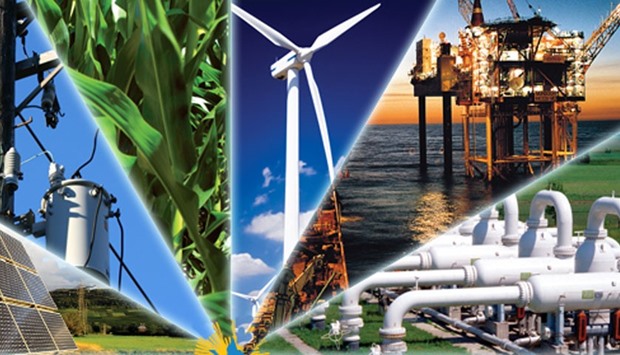The Middle East requires $555bn in total energy infrastructure investment by 2030 to meet the region’s rapid energy growth, a new report has said.
According to a recent report by NBAD, University of Cambridge, and PWC, the energy demand was set to double by 2030 in the Middle East and North Africa region.
Worldwide, energy efficiency investment is set to reach $385bn a year, or $5.8tn in total to 2030, according to a recent report by the International Renewable Energy Authority (IRENA). With buildings a major energy consumer, investment in energy-efficient buildings alone is set to reach $125bn by 2020.
Energy efficiency will be key for global countries to meet skyrocketing energy demand, the World Future Energy Summit (WFES) announced yesterday with the launch of the Energy Efficiency Expo at WFES 2017.
Energy efficiency in buildings, transportation, and manufacturing will play a key role — by replacing fossil fuels with renewable energy, improving electricity access and reliability, and reducing pollution, which in turn support economic growth, while benefiting society and the environment.
Anticipating the growing demand for energy efficiency solutions in the region, the WFES Energy Efficiency Expo 2017 is set to be a new annual, co-located exhibition, conference, and business matchmaking programme in the energy efficiency sector at Abu Dhabi Sustainability Week, hosted by Masdar.
“Sustainable development requires efficient management of energy demand as well as supply, and the Middle East and North Africa is no exception,” said Dr Ahmad Belhoul, chief executive officer of Masdar, Abu Dhabi’s renewable energy company.
“At the WFES Energy Efficiency Expo 2017, we will share our public-private partnerships in energy conservation, including the role of Masdar City, Abu Dhabi’s ‘green-print’ for sustainable urban design which consumes 40% less water and energy than city developments of a comparable size.
“It will also be an opportunity to showcase innovations such as Future Build, an online platform to help architects, engineers and contractors source environmentally responsible building materials and products that have been independently assessed. The Energy Efficiency Expo will encourage further collaboration and entrepreneurship at the intersection of water and energy, promoting the business case for sustainability,” Belhoul added.
Abdulla al-Shamsi, executive director (Strategic Affairs Sector) Abu Dhabi Urban Planning Council (UPC), said, “Sustainability is one of the guiding principles of Abu Dhabi Vision 2030 and as such lies at the heart of the UPC’s objectives for the development of the Emirate. We see energy efficiency in buildings as a vital factor in supporting Abu Dhabi to meet its current and future energy demands. Over the past five years, through the Estidama programme of sustainability, has rated the Emirate’s real estate developments based on a range of factors, including energy efficiency, using the mandatory Estidama Pearl Rating System. As strategic partners of this event, we look forward to sharing our knowledge and experience of best practice sustainability processes, tools and techniques with delegates at the WFES Energy Efficiency Expo in 2017.
In the Middle East, the UAE and Saudi Arabia are leaders in energy efficiency, with the UAE recently revising fuel subsidies in line with global indices, and Saudi aiming to improve energy efficiency for new vehicles by 20% and air conditioners by 35% to 2020, according to the IRENA report.
In the wider Middle East and North Africa region, countries that reduce their electricity load by 5% can save an average of $190mn a year, according to the Clean Energy Business Council.
“Energy efficiency is the low hanging fruit; it is one of the least expensive but most effective ways to solve the Middle East and North Africa’s skyrocketing energy demand. The WFES Energy Efficiency Expo 2017 will support smart government regulation that can help change behaviours of organisations and people to adopt energy efficient technology,” said Dr Nasser Saidi, chairman, Clean Energy Business Council.

Worldwide, energy efficiency investment is set to reach $385bn a year, according to a recent report by IRENA
